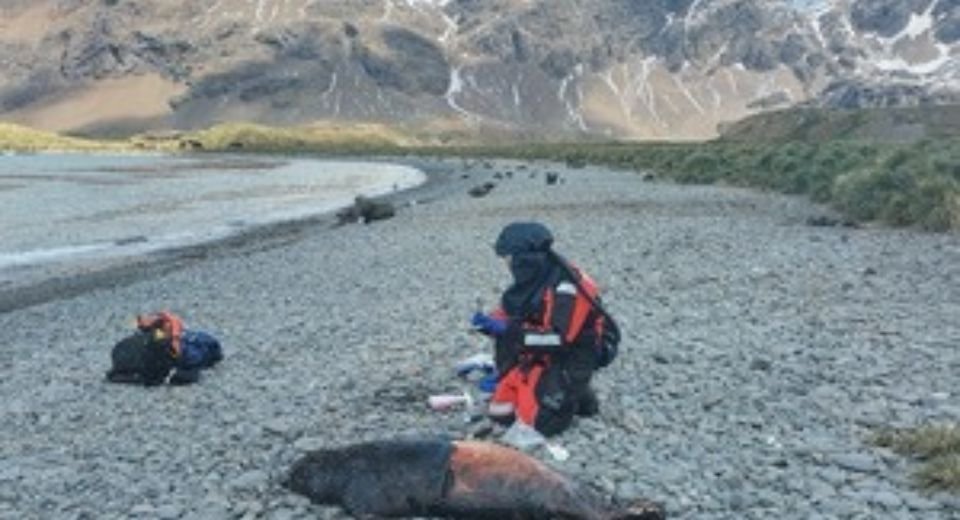HQ Team
January 16, 2024: The government of South Georgia and the South Sandwich Islands has detected avian influenza in mammals for the first time in the sub-Antarctica region, threatening its fragile ecosystem and the risk of the disease spreading to other seabirds and sea mammals.
According to the government of South Georgia, the disease doesn’t pose any “increased risk to human health at this time.”
Britain’s Animal Plant and Health Agency agency confirmed on January 11 the presence of High Pathogenicity Avian Influenza on elephants and fur seals on the island, in the South Atlantic Ocean. The island is a part of the 14 British Overseas Territories.
The South Georgia and the South Sandwich Islands lie about 1,400 kilometres east of the Falkland Islands.
The influenza was first suspected on Bird Island, off the northwest coast of South Georgia, in October 2023, after the deaths of several brown skuas. The island has some of the world’s most closely monitored seabird colonies — equipping scientists and conservationists with indicators of change for species.
“Sequence analysis from infected birds demonstrates that the virus has most likely been introduced through migratory bird movement from South America,” according to the government statement.
Dead mammals
Scientists and virologists collected samples from dead mammals, including elephant seals, and birds. Following testing and sequencing, the samples have tested positive for HPAI H5N1 in elephant seals, fur seals, brown skuas, kelp gulls and Antarctic terns.
Samples collected from albatross and giant petrel colonies on Bird Island tested negative. “Available genomic surveillance data continues to suggest no widespread mammalian adaptation of the virus. There remains no increased risk to human health – the risk of human infection with H5N1 remains very low.”
The spread of avian influenza among mammals throughout the sub-Antarctic is “concerning,” said Professor Ian Brown, APHA’s Director of Scientific Services.
Uncertainty over spread
“If avian influenza continues to spread throughout the sub-Antarctic region this could significantly threaten the fragile ecosystem and potentially put several very large populations of seabirds and sea mammals at risk.”
He said it was still uncertain how the virus spread.
“The available genomic surveillance data continues to suggest no widespread mammalian adaptation of the virus and the knowledge gathered from these latest samples will be shared rapidly with international partners to aid their efforts to tackle the disease and inform global risk mitigation.”
British Antarctic Survey operates two research stations in South Georgia: King Edward Point and Bird Island.
Fieldwork suspended
As a result of the confirmed cases of influenza, most fieldwork involving contact with animals has been suspended, according to the statement.
“BAS staff are following the additional biosecurity measures adopted this season of enhanced cleaning of clothing and field equipment when moving between sites with high densities of wildlife, as well as remaining vigilant for signs of disease.”
Long-term monitoring of wandering albatross, black-browed albatross, grey-headed albatross, northern and southern giant petrels, gentoo penguins and macaroni penguins are currently on.
European countries and Japan reported more highly pathogenic avian flu detections in wild birds and poultry, according to the World Organization for Animal Health.








